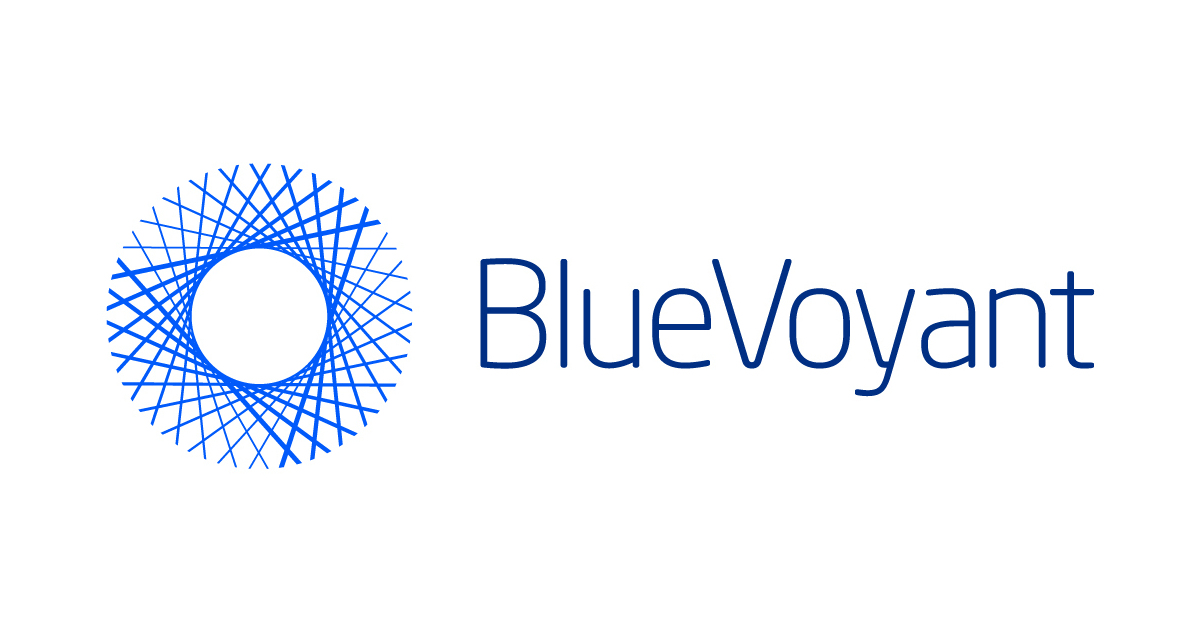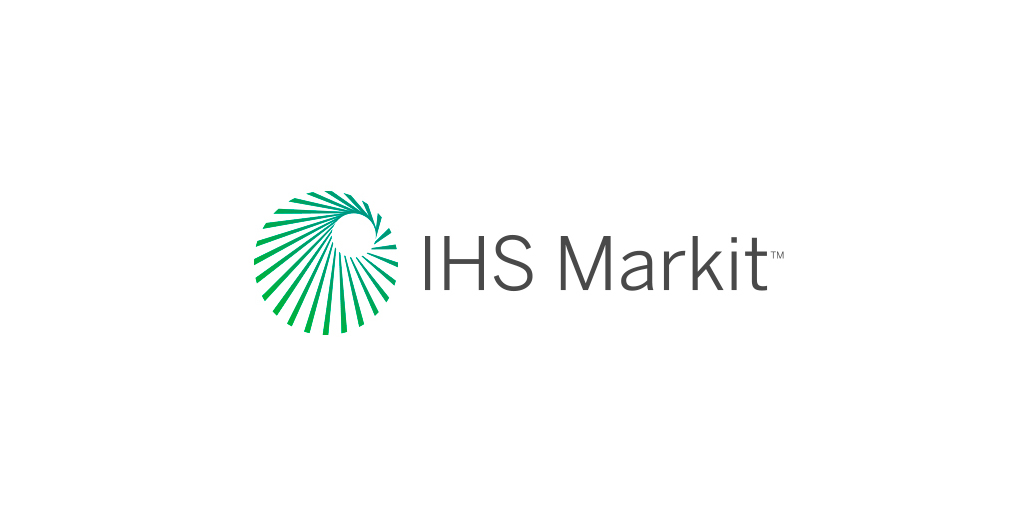Published
- 07:00 am

Global sports league SailGP and Acronis®, a world leader in cyber protection, have partnered on an innovative technology solution that will bring fans closer to the high-speed, high-tech action.
Through an innovative voice recognition project, every conversation onboard the national teams’ F50 catamarans will be tracked, transcribed and translated in real-time. This will then be made available to broadcasters and viewers around the globe across a number of mediums and in a variety of languages, including French, Spanish, Japanese and Mandarin.
SailGP is continually looking at ways to improve its award-winning broadcast production and use data to bring fans ever closer to the action, as well as help educate them on the high-speed world of SailGP. Being able to listen in on the key conversations – including tactical calls and race-winning, split-second decisions – will give fans a unique insight into what it takes to race at the highest level on the world stage.
The voice recognition project will also be an important tool in the team data analysts’ armoury as they look at ways for the teams to continually improve and gain a competitive edge while racing boats that all feature the same design and technology.
Through the three-year deal, Acronis will become an official Cyber Protection Supplier to the league, as well as Cyber Protection Partner to the France SailGP Team, helmed by multiple world champion Billy Besson, with its branding prominently displayed on the French team’s F50.
Acronis’ cyber protection solutions combine the best of cybersecurity and data protection, delivering on the Five Vectors of Cyber Protection: Safety, Accessibility, Privacy, Authenticity, and Security (SAPAS). One such solution includes Acronis Cyber Protect, which provides fast and reliable backup, AI-powered anti-malware, and comprehensive endpoint management in a single solution.
Acronis is no stranger to working on technological solutions for high-performance sports teams. In recent years, the tech firm has kept data safe and developed innovative solutions for English Premier League, La Liga, Serie A, Eredivisie, NFL, MLB, Formula One, and Formula E clubs and teams.
SailGP CEO Russell Coutts said: “Technical innovation plays an integral role in everything we do at SailGP, and we are continually looking at ways to entertain with our unique sports property and excite our fans. Being able to listen to all of the onboard communications in the different team languages will truly bring another dimension to our broadcast offer and we are really excited to work with Acronis to add this to our award-winning broadcast platform when the league restarts in San Francisco in April 2021.”
Acronis' founder and Executive Officer Serguei Beloussov said: “This is an exciting project to work on together with SailGP, and we are looking forward to seeing it well-received by fans once the league restarts next year. We are also thankful for the opportunity to work with SailGP to help them get #CyberFit by developing innovative AI/ML voice recognition technology to enable fans to have a truly unique insight into what happens on the race boats.”
France SailGP Team helm Billy Besson said: “It is fantastic to welcome Acronis – a company that shares similar values – as a partner to the French team. We are extremely excited to work with them on technological developments that will play a major role in the future of the sport, as well as continue to find new ways to engage our fans. We look forward to our partnership together.”
Related News
- 07:00 am

first direct has selected Mastercard as its partner for its debit card portfolio. Customers will begin to receive cards from the end of this year, as part of a multi-year agreement.
The announcement will bring enhanced digital benefits for first direct customers, including card controls and functionality, as well as exclusive offers, and a new rewards/loyalty program.
A spokesperson for first direct, said: “first direct has selected Mastercard as its partner for its Debit card portfolio. We’re really excited by the opportunities and services this will provide to our 1st Account customers. We’ll be letting customers know more about the benefits closer to the time.”
New to bank customers will begin receiving Mastercard debit cards in Q1 2021, and existing customers will be migrated gradually during the course of 2021.
Kelly Devine, UK and Ireland Division President, Mastercard said: “We are excited to be working with first direct to bring new and customer centric functionality to their 1.6 million debit cards. For us, this partnership is further proof that Mastercard’s debit card solutions offer all the flexibility, security and convenience banks and their cardholders require in today’s digital age, and we welcome first direct to the expanding list of innovative banks choosing to issue debit Mastercard in the UK.”
Across Europe, almost 200 million consumers now use Debit Mastercard every day to pay at 43 million locations instore, online and in-app. Each Debit Mastercard also supports Purchase with Cashback – and can be used for cash withdrawals and balance enquiries at ATMs.
Debit Mastercard is underpinned by safety and security features to reassure customers when they use their card for everyday spending. Whether they use Debit Mastercard to shop online, by phone or in a store, every purchase is backed by Zero Liability protection. That means they won't be held responsible in the event that someone makes unauthorised purchases with their card.
More than 75% of all card payment transactions in Europe are made with debit cards, representing over €2 trillion in card payment value.
Related News
- 02:00 am

Cards carrying only a domestic scheme’s branding accounted for 12% of all payment cards worldwide in 2018. This sector has strong growth potential, with products tailored to local market requirements.
Domestic schemes are often used as a financial inclusion tool
Several of the world’s largest payment cards markets are seeing a rapid increase in the numbers of domestic scheme‑branded cards, according to Global Payment Cards Data and Forecasts to 2024, a study carried out by strategic research and consulting firm RBR.
India, Russia and Brazil stand out in particular, with significant growth, driven by their respective schemes RuPay, Mir and Elo. In Russia, domestic scheme growth is largely attributable to public sector workers receiving their salary payments through the scheme.
Lower processing costs, both for issuers and acquirers, further encourage the adoption of domestic scheme-branded cards. This is one of the reasons behind RuPay’s growth in India, which makes up a quarter of all domestic scheme cards worldwide.
In many countries, cards branded with a domestic scheme are offered as an entry product to those joining the formal banking system for the first time. This is the case in Chile, where BancoEstado’s CuentaRUT debit cards traditionally only carry the branding of the Redcompra domestic scheme.

Source: Global Payment Cards Data and Forecasts to 2024 (RBR)
Understanding the target customer gives domestic schemes a competitive edge
One factor behind the success of domestic schemes is that they have an excellent understanding of their target group of customers and financial difficulties they might face, particularly in countries with significant unbanked populations. Overall, limited international functionality on domestic scheme-branded cards is not considered a significant issue, as their cardholders do not tend to travel outside the country of issuance.
Domestic schemes also benefit from the fact that in some countries there already exists a wider acceptance network for domestic than for international schemes; Germany and Portugal are examples of where this is the case.
According to RBR, there is strong potential for growth of domestic schemes, especially in countries where a significant proportion of the population remains unbanked. Daniel Dawson, who led Global Payment Cards Data and Forecasts to 2024, noted: “Although domestic‑only cards account for a relatively small segment of the payment card sector, they possess some unique advantages that will allow them to remain relevant in the coming years”.
Related News
- 07:00 am

Mastercard and Pollinate, the software business that is reinventing merchant acquiring for banks, have agreed to a strategic partnership that will see Mastercard and Pollinate collaborate to bring the latest technology and data insights to banks serving small and medium businesses around the world.
Mastercard works with thousands of financial institutions worldwide, and this commercial partnership follows Mastercard’s investment into Pollinate in 2019. It deepens collaboration in product development, business development and marketing efforts across Europe, Africa, Asia, and both North and South America.
Both Mastercard and Pollinate recognise the importance of small and medium businesses (SMEs) to communities and economies around the world. With SMEs accounting for 90% of businesses and 50% of employment worldwide, supporting them is even more crucial after Covid-19. Central to this support is the ability for SMEs to access the digital tools and payment solutions that will enable them to survive and thrive.
The Pollinate platform gives banks a modern toolkit for their SME customers. The platform is a cloud-based data and digital experience layer that can sit on top of any bank’s existing infrastructure (terminal estate, processor, gateways). The platform allows a bank to enter acquiring, or transform their existing business without changing their underlying infrastructure. Banks can offer their merchants digital onboarding, and a portal that acts as a central hub of a merchant’s business. The portal has sales and settlement information and proprietary tools such as digital loyalty programs and accounting integrations. The partnership with Mastercard deepens the portal functionality by adding Mastercard products and solutions such as deeper insights and stronger ecommerce functionality.
“Small businesses have an outsized impact on the global economy. We’re committed to powering small businesses globally, helping them sustain themselves with the right tools, network innovation, insights, services and assistance to thrive in the digital economy,” said Zahir Khoja, Executive Vice President of Merchants Solutions and Partnerships, Mastercard. “Our work with Pollinate and the wider issuer and acquirer solutions ecosystem supports our collective goal to offer digital payment solutions for small and medium size businesses to deliver a seamless experience for their customers in a time of need.”
Alastair Lukies CBE, founder & CEO of Pollinate, commented: “With SMEs being the cornerstone of the global economy and providing half the world’s jobs, supporting their growth and recovery has never been more important. Both Pollinate and Mastercard are passionate about working with banks to bring SMEs best in class services. Mastercard has demonstrated a long commitment to SMEs, and we are honoured to deepen our partnership.”
Related News
- 09:00 am

BlueVoyant, a global expert-driven cybersecurity services company, today announced its rapid growth and development fueled by further series of funding, impressive sales growth, recognition for its strong technology offerings and expanding market presence. The company’s first half year momentum speaks to the significant demand for expert-driven cybersecurity services.
"Our continuous growth is the result of our focus on delivering excellence in client services," said Jim Rosenthal, co-founder, and CEO of BlueVoyant. "Over the past six months, we have invested heavily in our key lines of business to ensure our customers have access to comprehensive services and technology to enhance their current solutions. As a result, we are viewed as an essential partner for customers."
So far in 2020, BlueVoyant has achieved several milestones including:
Closed Third Round of Funding: Secured $68 million in funding led by Temasek, a global investment company headquartered in Singapore. The funding will accelerate growth plans across three key lines of business: Managed Security Services, for 24/7 detection and response inside customer networks; Third-Party Cyber Risk Services, providing supply chain and investment portfolio defense; and Cyber Defense Services, providing Incident Response, Defense Assessment, Brand Protection and Threat Intelligence.
Market Recognition: BlueVoyant continues to expand its recognition by being recognized as a ‘Strong Performer’ in The Forrester Wave™: Midsize Managed Security Services Providers, Q3 2020 report. According to the report: “As legacy MSSP approaches become outdated and less effective, improved threat intelligence and integrations will dictate which midsize MSSPs will lead the pack.” BlueVoyant tied for the top score in the automation and reporting capabilities criteria. BlueVoyant also tied for the top score in the talent management criterion, which is a key Unique Selling Point of BlueVoyant’s cyber security services. Lastly, Forrester found BlueVoyant’s approach is unique as an MSSP, emphasizing cloud platforms for service delivery and also stated: “Companies seeking an MSSP with a cloud-led approach, transparent portal, and extensive financial services expertise should consider BlueVoyant.”
Acknowledged Industry Ecosystem Provider: BlueVoyant joined the Microsoft Intelligent Security Association (MISA), an ecosystem of independent software vendors and managed security service providers who have integrated solutions to help customers better predict, detect, and respond to security threats faster. MISA membership is by invitation only, with Microsoft reaching out to a select core group of managed security service providers from across the cybersecurity industry.
Exceptional Business Performance: BlueVoyant recorded impressive sales growth of 210 percent in the first half of 2020 and has increased its customer base to more than 300 clients across four continents in 16 different industries. BlueVoyant also secured key partnerships with market-leading organizations including TELMEX Scitum, a leading company in IT security and has further developed its relationship with Fiserv, global provider of financial services technology.
Mark Turnage, CEO from DarkOwl and BlueVoyant Customer sums up why customers select BlueVoyant: “We were looking for best-in-class managed Endpoint Security and Threat/Compromise Detection and Response capabilities and found them in BlueVoyant. We see their services as remarkably robust and industry leading, and it made sense for DarkOwl to go with the best in the business.”
Related News
- 04:00 am

AxiomSL, the industry’s leading provider of risk and regulatory reporting solutions, today announced an agreement with Mitsubishi UFJ Financial Group (MUFG), a leading global financial services group and one of the largest banking institutions in Japan, to implement AxiomSL’s Global Shareholding Disclosures solution. Under the agreement, AxiomSL will provide cloud-based, automated daily position monitoring and reporting to help MUFG meet shareholding disclosure requirements across its global footprint.
Regulators in more than 100 jurisdictions require market participants to make specific disclosures when they accumulate a substantial shareholding in an issuer or security, invest in a sensitive industry, become involved in a takeover bid, or engage in short selling. However, there is little standardization of rules; each regulatory authority enforces shareholding monitoring and disclosure requirements with its own unique nuances, creating a significant compliance challenge for global financial institutions. AxiomSL’s Global Shareholding Disclosures solution automates the process of monitoring and reporting threshold breaches, which enables firms to standardize their processes and defend audits.
“As one of the world’s largest banking institutions with equity investments globally, MUFG is a prime example of the type of firm that will benefit enormously by automating its shareholding monitoring and reporting compliance processes in the cloud,” said Gaurav Chandra, Global Product Manager, Global Shareholding Disclosures, AxiomSL. “Amid the heightened volatility that has accompanied the COVID-19 crisis, equity investments are attracting more scrutiny than usual, making this an opportune time to implement a cloud-based solution that scales globally and adjusts instantly to changes in investment thresholds. We look forward to working closely with MUFG to implement best-in-class automated global shareholding monitoring and reporting.”
MUFG will implement the solution on AxiomSL’s RegCloud®, which enables financial institutions to benefit from AxiomSL’s ControllerView® data management platform for their risk and regulatory data and reporting initiatives while harnessing the power of the cloud.
The solution enables MUFG to consolidate and aggregate reporting across its complex global entity structure and strengthens its ability to comply with detailed requirements in each jurisdiction. The solution’s approach to data harmonization also enables MUFG to apply a consistent, rules-based framework for aggregating and disaggregating equity holdings on a firm-wide basis. Further, AxiomSL’s end-to-end Global Shareholding Disclosures solution delivers unique user-focused dashboards that provide desk-level monitoring of equity thresholds.
Related News
- 07:00 am

Computop, a leading global payment processor, and Eckoh (AIM: ECK), the global provider of Secure Payment products and Customer Contact solutions, announce that they are partnering to further augment payment security for card-not-present (CNP) payments. Through this relationship, retailers benefit from enhanced payment security across every channel, increasing customer satisfaction.
Rapid innovation, change in consumer preferences and unpredictable external factors mean businesses must remain agile while still offering premium payment security. Computop provides retailers worldwide with innovative, secure omnichannel solutions for payment processing and fraud prevention. Its Paygate payment platform processes payments across every channel, including e-commerce, at the POS and via mobile devices. Eckoh provides PCI DSS-compliant secure payment solutions to many of the largest enterprises in the UK and US, including many Fortune 500 companies, to ensure that sensitive payment and personal data never enters the contact center environment when a CNP payment is taken, giving a simple and effective way to minimize fraud risk, secure sensitive data and become PCI DSS compliant. Together, Computop and Eckoh provide retailers with the payment security they need to stay nimble, engender consumer trust and meet PCI requirements.
“As a trusted payment service provider, we are always looking to partner with best-in-class providers to offer a full, end-to-end suite of value-added services,” said Briana Kovacs, Vice President of Partnerships, Computop. “Computop and Eckoh’s joint solution enables companies to securely accept preferred forms of card-not-present payments while maintaining enhanced customer service. This enables retailers to provide consumers with the secure payment options they desire while driving customer satisfaction.”
“We’re excited to partner with Computop to help their customers reach new levels of security and compliance,” says Dan Arntz, President of US Operations for Eckoh. “PCI 4.0 is just around the corner and will introduce even stricter regulations to protect sensitive consumer data. At the same time, you have cybercriminals that are becoming even more aggressive and cunning. Partnering with a reputable company like Computop allows us to extend our simple, secure solutions to their customers — which secures consumer data for card-not-present transactions while easing the burden of PCI compliance.”
Related News
- 06:00 am

It’s not just cyber technologies or digital currencies that are worrying financial crime teams in financial institutions across the UK & Ireland. It’s also the increasing volume and variety of more established financial crimes that aren’t new, but are incredibly hard to detect, such as mule activity; the proceeds of trafficking; the abuse of corporate structure and the criminal use of third parties. Despite spending 3% of their annual revenue on financial crime compliance – equating to almost £60 million per annum for larger banks – organisations still worry about their exposure to money laundering and the risk of inadvertently facilitating serious organised crime like trafficking, murder, kidnapping and terrorism, according to a new report, Future Financial Crime Risks, 2020 released today by global data and analytics provider, LexisNexis® Risk Solutions.
In the last 12 months, firms report being exposed to a wave of financial crime methodologies, including the use of money mules (37%); the criminal use of third parties such as law firms, accountancy firms and estate agents (37%); trade-based money laundering schemes (31%); the proceeds of trafficking (27%); the abuse of corporate structures (27%); the misuse of digital currencies (25%); and the misuse of prepaid cards (10%). When viewed across different types of financial organisations, no one crime was mentioned by a majority.
Nearly half of banks (45%) indicated exposure to money mules during the previous 12 months; rising to 56% among building societies and 60% for challenger banks. Exposure to the criminal use of third parties was reported most often by building societies (44%), asset management firms (43%) and private banks (42%) – with the latter also more likely to report exposure to the proceeds of trafficking (42%). With no single financial crime emerging as most common, criminals appear to be targeting different organisations with specific methodologies, where their controls are seen as weakest.
The Future Financial Crime Risks 2020 report, seeks to understand banks, challenger banks and fintechs, asset managers and wealth management firms’ perceptions of the current financial crime landscape, alongside identifying what the current risks are, and where they see risks emerging in future.
Worryingly, this reports’ findings are likely to be just the tip of the iceberg, given the difficulty firms report in recognising the patterns and behaviours associated with these complex financial crimes. Our study reveals many financial institutions to be less than fully confident they can detect many of the most prevalent crimes cited, including the proceeds of trafficking (55%), trade-based money laundering schemes (49%) the misuse of corporate structures (52%) and the misuse of digital currencies (43%), with some highlighting that they simply don’t have the data points to be able to detect these types of offences.
What is more, this onslaught doesn’t show any sign of easing. Almost a third (32%) of respondents expect their exposure to money mules to increase in the next 18-24 months, with almost the same proportion (29%) expecting to see criminals using third-party advisers more prevalently. In fact, across the board, the report shows that the majority of compliance professionals expect exposure to these types of financial crime to increase or remain the same over the next 18-24 months, as opposed to decrease.
As financial crime becomes more targeted and sophisticated, the cost of compliance for organisations is mounting. However somewhat surprisingly, firms are spending twice as much of their compliance budgets on people (64%), as compared with technology (36%), likely to deal with the volume of processing and reporting required to remain compliant with regulation. For mid to large UK firms, the average annual cost of compliance is £45.1 million, while for small UK firms the average cost was £8.8 million. In Ireland the costs are relatively lower, with mid to large firms spending £23 million and small Irish firms spending £3.1 million.
Despite the clear benefits of using technology to automate processes, allowing firms to redeploy humans to carry out more effective, risk-based analysis, the balance is still tipped heavily towards people. However, it’s not necessarily that firms don’t understand the benefits that technology could bring; many firms surveyed talk about outdated technologies, ineffective tools, IT gaps and system shortfalls. In many cases, the problem is that firms are operating legacy infrastructure which they believe restricts their capability to invest in newer and more agile technologies and solutions. They believe the costs of stripping out and replacing existing technology would greatly outweigh the benefits, certainly in the short term.
Meanwhile, the latest government statistics indicate that at least $100bn is still being laundered annually through the UK, with only around 1% being detected. If financial crime continues to rise exponentially and firms continue to invest two thirds of their compliance budgets in people, then the fear is that far from narrowing the gap, it will continue to widen. What the financial services industry needs is more investment in technology to build scale, automate essential processes including aspects of monitoring and reporting, and apply advanced analytics and machine learning to data in order to significantly improve detection rates.
Steve Elliot, Managing Director at LexisNexis® Risk Solutions says:
“Businesses require a far higher volume of more sophisticated data attributes that can provide better insight on the individuals and transactions involved in the complex, inter-connected and evolving financial crime ecosystem, as well as the ability to run strong analysis against these attributes. In this way, financial institutions can hope to gain a clearer picture on risks that they may not previously have seen.
These large datasets then need to be combined with careful monitoring and reverse engineering, using outcome data, taking confirmed crimes and transaction flows and understanding how they occurred, what were the patterns of activity and flows of money, and what can be learnt from this. This type of outcome-based approach to solving problems can already be seen across a wide range of different sectors, including manufacturing and medicine.
Ultimately, it’s vital that businesses move beyond just focusing on ensuring compliance, and focus more on how they can effectively detect, deter and disrupt financial crime. Although data and technology can be costly, the costs of not getting it right are far higher.”
Related News
- 03:00 am

Allianz Global Investors, a leading active asset manager, has adopted IHS Markit's leading investment management platform, thinkFolio, as the strategic decision support solution for its global fixed income business. The firm will leverage thinkFolio as a managed service hosted on the Amazon Web Services (AWS) cloud.
Allianz GIobal Investors' fixed income team, responsible for managing EUR 193 billion, has broadened and deepened its capabilities significantly over many years and recently evolved its business model into an integrated, global structure. As part of this evolution, the organization is embarking on an ambitious plan to enhance and enrich the decision support platform and toolkit for its global portfolio management and cross-functional investment teams.
thinkFolio will provide Allianz Global Investors with enhanced decision support, portfolio modelling and trade generation. As part of the managed service delivery of thinkFolio, IHS Markit will manage upgrades and real-time feeds, and execute overnight data loads and start-of-day processes.
"We are very happy to have selected thinkFolio as our decision support tool for fixed income at Allianz Global Investors. The functionality and customization capabilities that thinkFolio offers are complementary to our unified investment process, and thinkFolio's ability to handle all instruments within the fixed income asset class is important in helping our diverse range of strategies meet the expectations of our clients," said Franck Dixmier, Global Head of Fixed Income at Allianz Global Investors.
"Allianz Global Investors is embarking on a substantial and strategic initiative to upscale and improve our fixed income operating model," said Markus Lohmann, Global Head of IT at Allianz Global Investors. "We see thinkFolio as a cornerstone of the program to enable and unlock our ambitious target state investment workflows, business processes and integration flexibility. We have a long standing and productive relationship with IHS Markit, including our use of their Enterprise Data Management (EDM) solution, and look forward to partnering with their senior team to execute on this operating vision."
"Given its impressive and long-standing footprint across global, actively managed strategies, we are delighted to support Allianz Global Investors over the course of their exciting transformation journey and beyond," said Brett Schechterman, Managing Director and Global Head of thinkFolio at IHS Markit.
"As asset managers face an increasingly competitive market and challenging operating margins, IHS Markit is well-positioned to provide the technology solutions and services required to enable Allianz Global Investors to scale efficiently including accessing new markets, deploying new cross asset investment strategies, and growing assets in private and public markets without disruption," said Keith Viverito, Managing Director, EMEA Sales for Financial Services Solutions at IHS Markit.
Concluding, Schechterman added, "thinkFolio, with fixed income investing at its foundation, will continue to advance its suite of portfolio management and modelling capabilities and open architecture to suit the next-generation requirements of our clients."
Related News
- 06:00 am

OneStream Software, a leader in corporate performance management (CPM) solutions for mid-sized to very large enterprises, has appointed two new members to its board of directors. Jonathan Mariner, experienced finance executive and consultant at Overtime Sports Media, and Kara Wilson, Senior Advisor at KKR & Co. join the board, expanding the vast and diverse executive level experience of the OneStream Software Board of Directors. These additions to the board of directors come on the heels of the company's rapid growth and extensive independent recognition, including this week's ranking as number 914 on the 2020 Inc. 5000 list of the fastest-growing private companies in America.
OneStream Software recently announced the company experienced a 75 percent increase in Annual Recurring Revenue (ARR), a 40 percent year-over-year growth in customer acquisitions and a 67 percent increase in employees. That impressive growth across several key metrics and the company's more than 500 percent increase in revenue over the last three years led to its recognition as one of the fastest growing private companies in America by Inc. Magazine for the fifth consecutive year. OneStream’s innovative solutions have empowered enterprises with the agility to adapt to the year's unprecedented challenges. The company's resulting success during these times validates its continued momentum and market leadership.
“The COVID-19 pandemic has highlighted the value of OneStream’s cloud CPM platform in keeping remote workers connected while providing insights to management and the ability to quickly reforecast and model multiple business scenarios," said Tom Shea, CEO of OneStream. “The additions of Jonathan Mariner and Kara Wilson to our board of directors is an important step for our company as we continue to expand our capabilities and market leadership.”
Jonathan Mariner is a seasoned financial executive who brings years of experience across several different industries, including 14 years with Major League Baseball (MLB) as VP & CFO. Mariner has also held various other board positions with companies such as Tyson Foods. At a time when assessing and avoiding threats is more critical than ever, Mariner brings a new element of risk management and financial controls experience to OneStream's board.
"OneStream’s growth is accelerating rapidly, supported by an outstanding team, an innovative solution and a customer-first mindset,” said Mariner. “I look forward to utilizing my diverse experience to ensure the company continues to succeed during an uncertain time in world history."
With over two decades of experience driving go-to-market strategies for both large and medium-sized companies, Kara Wilson’s appointment as an experienced marketing executive will bring strong software marketing knowledge to the board. Wilson has held marketing leadership roles with some of the technology industry’s most influential companies, including Rubrik, FireEye, Okta, Cisco, SAP, SuccessFactors and PeopleSoft/Oracle. That marketing expertise will be critical to capitalizing on the company’s continued growth and executing its long-term strategy.
“We are witnessing an acceleration of the restructuring of the Office of Finance across enterprises worldwide, and OneStream has proven itself as the leading software provider in that digital finance transformation process," said Wilson. "I'm excited to join the board at this inflection point in the company's lifecycle and look forward to advising them on their next chapter.”
Learn more about OneStream at www.onestreamsoftware.com.









